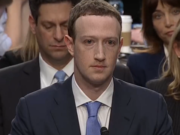This op-ed, co-authored by Bradley A. Smith and David Keating, originally appeared in Washington Examiner on January 25, 2021.
Recent decisions by social media companies to ban or suspend former President Donald Trump and others from their platforms are legally protected. The First Amendment restrains government, not private parties, from censoring speech.
Still, these actions should give us pause. Just because companies can censor speakers, that does not mean they should do so. The history of suppressing supposedly “dangerous” speech is rife with abuses and unforeseen side effects. The first point to note is that censorship undermines the very goals it is instituted to achieve. Those censored often come to see themselves as persecuted, hardening their convictions and increasing their fervor. In such a state, they can fall prey to leaders with extreme, dangerous ideologies. They can retreat into circles of conspiracies, feeding off of fear and anger in place of the public commons cooling influence. Open debate, where one can engage with dissent, or at least know what others are saying, is preferable to the secret malcontent fostered by censorship.
Social media has given a platform to millions of people to express their views and engage in civic life. The historic turnout in last year’s elections and the unprecedented number of people making campaign donations through online platforms such as ActBlue and WinRed are partly the result of the vibrant forums for political speech social media enables. These benefits are threatened when platforms attempt to police political speech without being transparent and consistent.
Social media has grown and prospered, in large part, because of the protections offered by the First Amendment. But a true commitment to freedom of speech requires more than mere adherence to the strictures of the First Amendment. It demands a broad appreciation of free speech and a willingness to tolerate diverse opinions. When powerful private actors denigrate free speech, and engage in what often appears to be arbitrary censorship, they erode support for the freedoms that enabled them to thrive and that are essential to a free and democratic republic.
The unclear standards and seemingly arbitrary bans, suspensions, and selective enforcement that are common on the most popular social media platforms are therefore worrisome, even though they do not run afoul of the First Amendment. Appeals are often unheard, and explanations are not given. Bans are sometimes imposed forever, foreclosing any change of heart by the user about how to speak to or treat others. To regain the public’s trust, social media companies should articulate clearer policies. They should apply those policies fairly and without bias. When there is a close call, they should err on the side of free expression. Users whose speech has been removed deserve a form of due process. Social media platforms should have a senior manager who is responsible for advocating internally for free expression.
Equally disturbing are the unprecedented pressures applied by elected officials on platforms to censor certain speech or speakers protected by the First Amendment. The government cannot command private companies to censor on its behalf. Veiled threats by legislators to regulate or tax corporations that do not adopt particular moderation policies or apply their existing policies as desired by the legislator have no place in public discourse.
People who are unsatisfied with the policies of one social media network should be free to start their own or join new platforms. For this reason, recent actions by Apple, Google, and Amazon Web Services to shut down the social media platform Parler also raise significant concerns for our culture of free speech. No social media platform should be able to moderate all content. This also raises concerns related to competition law, especially pertaining to those with limited resources.
Social media platforms, as well as tech companies that provide the web’s infrastructure, should commit to fostering a culture of free speech online. Tech companies should immediately take steps to ensure new platforms have a fair chance to grow. These companies have the ability to make their voices heard. They should not use their power to try to silence other voices.
Free speech on the internet is an essential force in today’s democracy. Its survival depends not only on the letter of the First Amendment but on the spirit of inquiry and tolerance for opposing views that underlie the First Amendment.














